
WhatsApp's end-to-end encryption is not all it's cracked up to be
Just a few days ago, WhatsApp trumpeted the roll out of end-to-end encryption for its messaging service. The world rejoiced. With events such as the battle between Apple and the FBI turning attention to encryption, the announcement was well-timed to ride the crest of the wave. But it seems that for all of the bluster and bravado, the news about extra protection may not be quite as good as it seems.
Analysis of WhatsApp's privacy documentation reveals that the Facebook-owned company retains a huge amount of data about messages that are sent. If this all sounds familiar, it's because the retention of metadata is precisely what the NSA was (is?) up to, trawling web communications and upsetting Edward Snowden and privacy advocates around the world. WhatsApp's encryption and policies mean that those who are concerned about their privacy should not rest on their laurels.
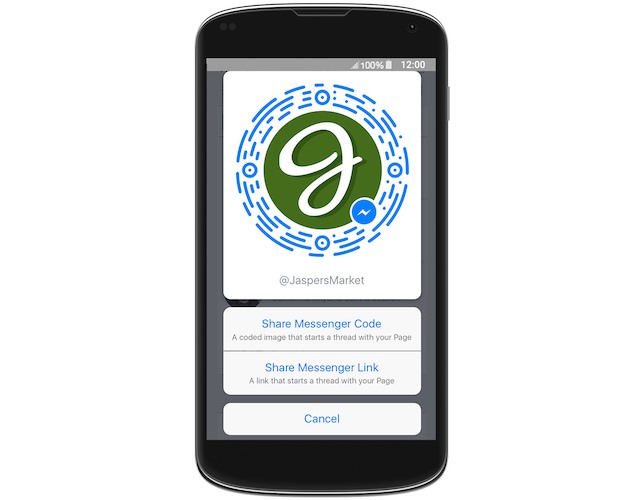
Facebook encourages conversation with Messenger Links and QR-like Messenger Codes
WhatsApp may have a billion users, but Facebook Messenger isn't far behind: Mark Zuckerberg says "900 million people now use Messenger every month". Nowadays, Facebook is about much more than people sharing pictures of breakfast and bitching about their friends, it's also a valuable tool for businesses.
With this in mind, Facebook is adding a number of features to Facebook Messenger that it says will make it easier for businesses to connect and converse with their customers. Usernames will make it easier for people to identify businesses, while Messenger Links and Messenger Codes (just think QR codes with a fresh lick of paint) are being rolled out to make it quicker and easier to start conversations.

How to access Facebook's secret inbox and view messages you never knew you'd received
Facebook is a great way to keep in touch with friends both past and present. You can post something on another person’s wall, or spark up a chat through Messenger.
For the most part, holding a conversation on the social network is easy. If someone is a friend they’ll be able to send you a private message, and anyone who isn’t currently connected to you will be able to get in touch by sending a message request. But what you probably don’t know is Facebook has a secret inbox which may well contain messages you never even knew you’d been sent.
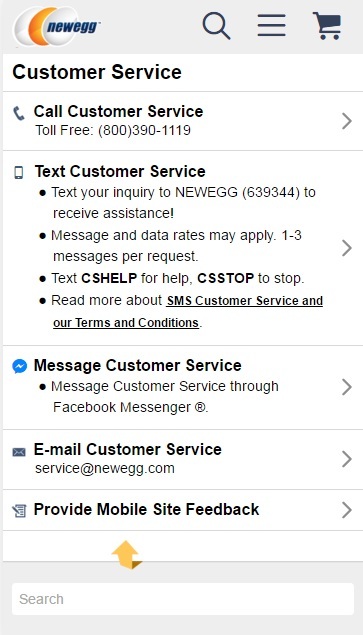
Newegg bolsters its customer service with Facebook Messenger
As a PC builder, Newegg is a website on which I spend a lot of time. Not only does this online retailer offer great prices, reliable customer service, and a large amount of available products, but it is a great resource for learning too. Even if you aren't looking to spend money, you can "window shop" at the new offerings, as a way to stay up-to-date on the latest trends and technologies.
Today, Newegg enables a new feature that is really cool and forward-thinking. You can now interact with the retailer's customer service using Facebook Messenger. In other words, the social network's messenger service has value that expands beyond casual chatting -- it is also a legit business tool, dubbed "Messenger for Business".
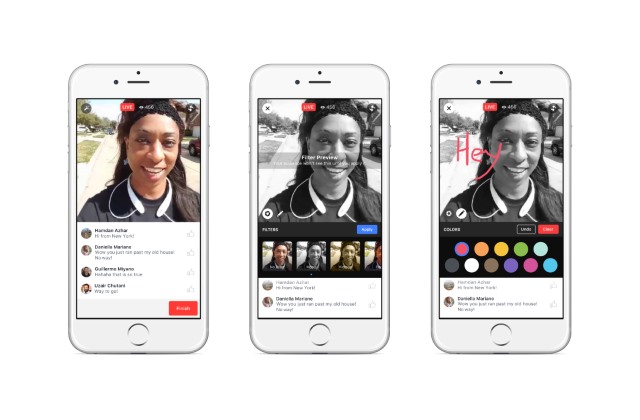
Facebook boosts live video with new interactive options including Live Reactions and group video
Facebook Live may have started life as a celebrity-only feature, but it soon spread to all users, giving them the opportunity to share their own live video streams. Today the social network unveils a number of new features with the aim of making it easier to find and share live broadcasts, as well as personalizing and interacting with video.
Live video is all about bringing together a community of people to share an experience, so it's little surprise that the first of today's announcements sees the arrival of Facebook Live to Facebook Groups and Facebook Events. Building on the Reactions feature that rolled out recently, live video now also benefits from Live Reactions. But the laundry list of new features doesn't end there.

Egypt bans Facebook Free Basics for NOT spying on users
In another blow for Mark Zuckerberg's free internet service, Facebook Free Basics has been banned in Egypt. The Egyptian government made the decision after Facebook refused to allow it to use the service to spy on users.
The shutdown comes just five months after Facebook Free Basics launched in Egypt, having proved controversial in other countries for contravening net neutrality rules. But Facebook's refusal to permit government surveillance of users means that the service has been banned this time for political reasons.

Facebook gives users selective memories with date and people filtering
Facebook's Memories feature can be a nice way to start the day. Fire up your phone first thing in the morning, and you can wax nostalgic as you look at your status updates and photo uploads from years gone by. But the On This Day look-back is not always warm and fluffy; Facebook isn't just about the fun aspects of your life.
In response to feedback from users who were unhappy to be cheerily reminded of the death of a loved one or some other tragic event which they might prefer to put to the back of their minds, Facebook has introduced On This Day preferences making it possible to filter out content involving certain people, or from a particular date range.

Instagram follows Twitter in embracing non-chronological algorithmic timelines
Any time a social network makes a change, it upsets a lot of people. Facebook has done it countless times -- just look at the vocal outpourings that followed the launch of reactions, for instance -- and Twitter recently irked many users with a new algorithm timeline, albeit one that can be disabled. Now it's the turn of Instagram.
The image- and video-based social network is currently testing an algorithm-driven timeline, much like Twitter and Facebook. Instagrammers are not happy. Not one bit (hence the appearance of the #boycottinstagram hashtag). The primary concern among users -- the narcissistic blighters! -- is that their posts will not be seen and will instead be buried in the noise of their followers' timelines. But all is not lost.
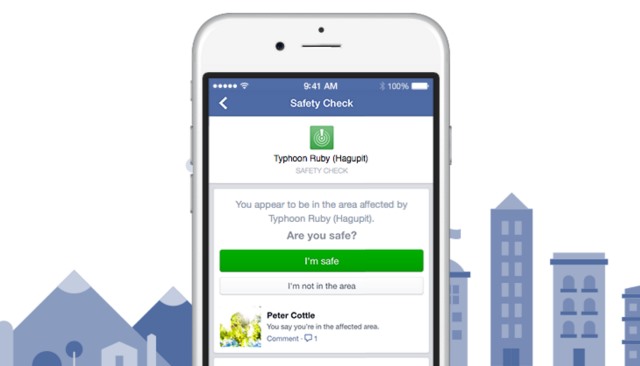
Facebook apologizes for enabling Safety Check in the wrong countries after Pakistan suicide bombing
Over the Easter weekend a suicide bomber blew himself up in Lahore, Pakistan. The explosion killed dozens of people and Facebook enabled its Safety Check feature to make it easier for those in the area to let loved ones know they were OK.
But as well as asking people in Pakistan whether they were safe, Facebook also activated the feature and sent messages to people in other unaffected parts of the world. Facebook users in New York, Hong Kong, Cairo and numerous other places received messages asking "Have you been affected by the explosion?" with no reference made to Pakistan or Lahore. Facebook has issued an apology for any unnecessary worry this may have caused.
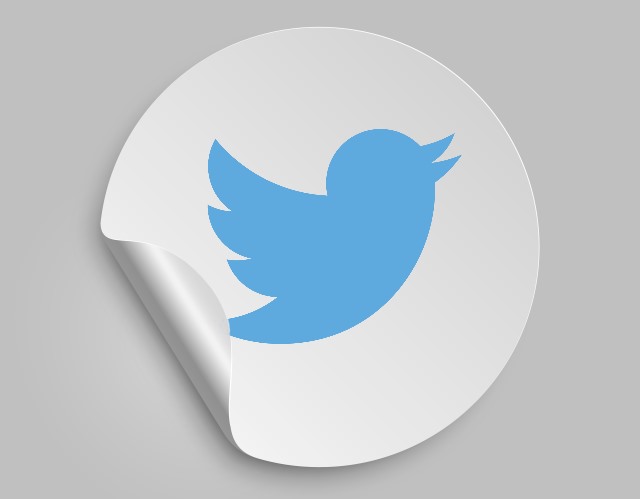
Stickers, Stamptags, Taptags or Stickits... Twitter is testing a new image editing tool
Sometimes sharing a plain old image just isn't enough. Sometimes you might feel the need to adorn an otherwise dull image with clipart-style graphics. Sound like you? If so you're going to love the sound of a new image tool Twitter is testing... if not, brace yourself for an influx of irritation in you timeline.
Currently being referred to as Stickers (sound familiar?) -- although names including Stamptags, Taptags or Stickits are also in the running -- the tool is undergoing testing with a select group of tweeters. It allows users to add graphic overlays to photos and also introduces some extra social features in a bid to stand out from other tools available elsewhere. Meme creator, anyone?

Want the best customer support? Use Facebook
Facebook is the number one channel for people looking to get answers from retailers’ customer service in the UK, a new study shows.
According to the Eptica Multichannel Customer Experience study, Facebook is the channel through which retail customer service answers most frequently and most accurately, followed by email. Twitter came in third, with pretty poor results.
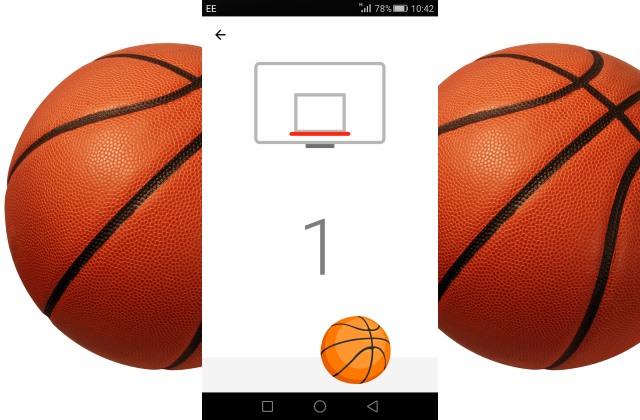
How to play Facebook's secret basketball game
Who doesn't love a good Easter egg? Apps, games and websites have all manner of hidden secrets, and Facebook is no different. It's not all that long ago that we showed you how to play the chess game secreted in Facebook Messenger and now another gem has been unearthed.
Also hidden away in Facebook Messenger you'll find a basketball game -- just in time for March Madness. Be warned, it's quite addictive but shooting some hoops is a great way to kill some time with a friend. All you need is an Android smartphone or an iPhone.
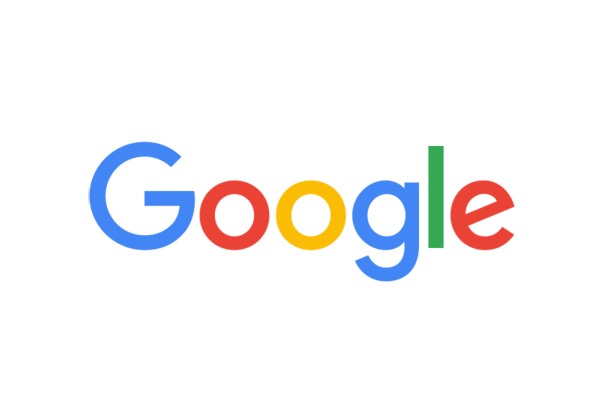
Google's Single Sign On adds support for Microsoft Office 365, Facebook at Work, Slack and more
Besides being the super poplar search engine, email provider, work and collaboration services provider, Google is also used, by a number of different services, as an identity provider.
It allows people to register and log into different online services using their Google account. Now, the company announced it’s expanding the feature to add a number of new services, some of which are direct competitors.

Encrypt all the things! Facebook, Google and WhatsApp to increase privacy and encryption
Privacy and security has always been a hot topic, but never more so than in recent months. The Apple/FBI case has really brought things to a head, enlivening the debate between privacy and security advocates, and those who side with the government. As Apple fights to prevent the FBI from accessing the San Bernardino shooter's iPhone, Facebook, Google and others are looking to increase encryption and lockdown user data even further.
The Guardian has learned that a number of Silicon Valley companies are working on ultra-secure encrypted messaging systems. With President Obama having made a sideways reference to supporting the inclusion of backdoors for government, Facebook is planning to not only bring encryption to Whatsapp's voice messages, but also to bolster the security of Facebook Messenger.

Your office distractions are quite costly!
OfficeGenie.co.uk has conducted a research to see how much time people are wasting being distracted at the office, and it’s not good news. Those silly cat videos you watch on Facebook every day at work are costing the country billions of pounds. Yes, you read that correctly.
On average, British workers spend more than three quarters of an hour (more than 45 minutes every day) being distracted online. When you combine how much that costs, and how many workers there are in the UK, you come to a figure of £88 billion each year.
